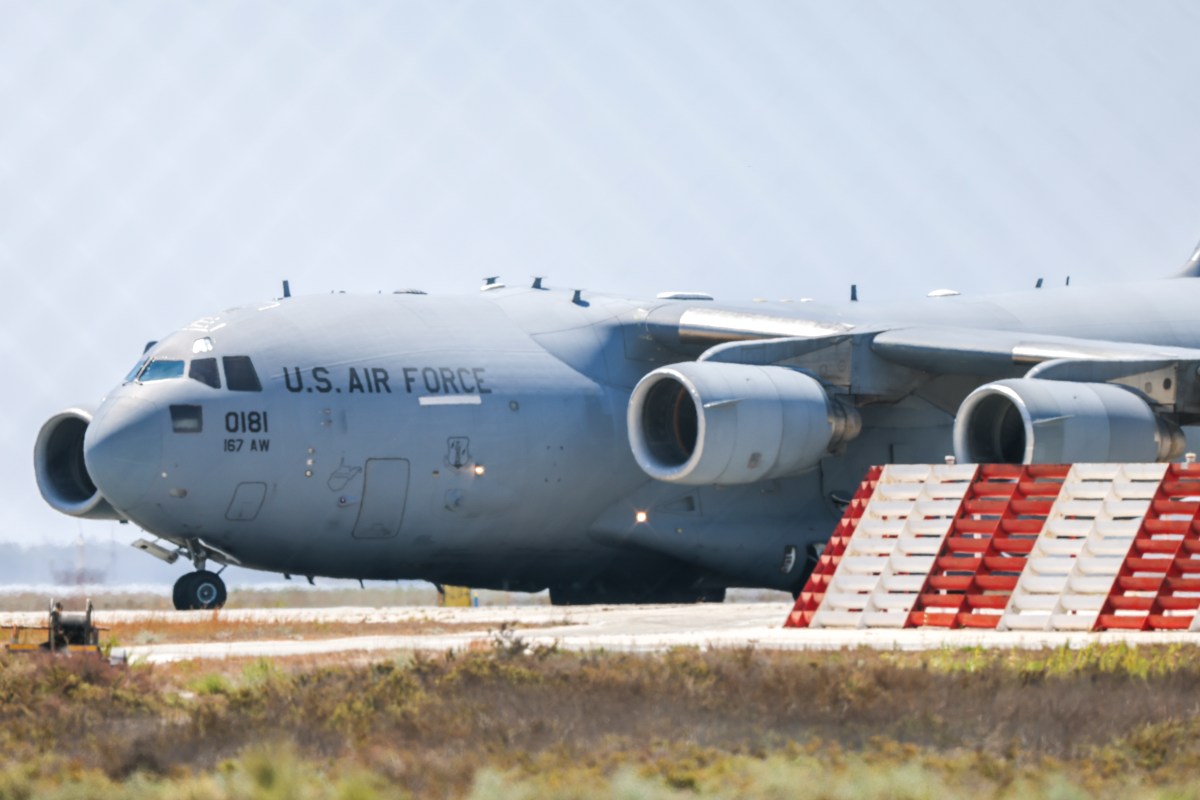The U.S. Department of Defense is a mammoth organization. It not only employs millions of service members and hundreds of thousands of civilian employees, but also has the world’s largest military budget that’s used to buy and maintain more equipment than can likely fit into a single paragraph.
It’s a lot to coordinate. Operators within the various agencies of the DOD must make decisions about how to plan their operations, coordinate resources, and stay within budget for events that are likely contested — whether that’s from a hurricane or an adversary.
Two years after it was incubated, Virginia-based startup Defcon AI has raised a $44 million seed round to solve this seemingly intractable problem.
Consider the Air Mobility Command, a command of the U.S. Air Force. When operators plan airlifts, they have to consider a whole slew of variables: available aircraft, the number of crews required, places for crews to rest, where to refuel, relevant airfields, cargo handling locations. Defcon AI says it has developed a set of software that allows the operator on the front end set these parameters “and then turn the software loose,” Defcon’s co-founder chief strategy officer and retired U.S. Air Force General Paul Selva told TechCrunch. The software essentially operates against those parameters or inputs to generate the best plan — including the cost tables, resource requirements and schedule.
This type of planning is difficult enough in the best of circumstances, but during a crisis, defense operators don’t even have the luxury of a day to allocate their resources. That’s where Defcon AI comes in.
“I’ve had all the jobs that we’re actually impacting,” Selva said. During his long military career, Selva held many titles, including the commander of the Air Mobility Command, which oversees nearly all of the Air Force’s fleet of air lift aircraft. He later became the commander of the U.S. Transportation Command, which coordinates transportation missions around the world, including those delivered by ships, trucks, trains and other forms of transportation. Before he retired in 2019, he was nominated by President Barack Obama to be the Vice Chairman of the Joint Chiefs of Staff.
He cofounded Defcon in 2022 with Yisroel Brumer and Grant Verstandig, both founding partners of Red Cell Partners. Red Cell has an interesting model: the firm makes internal investments but it also incubates companies (including Defcon), often identifying promising entrepreneurs that could lead them. Sometimes, entrepreneurs approach Red Cell before they found a company, and the firm handles things like board building, legal, HR, and finance while the company grows.
In the case of Defcon, Silva says that the company got started “because Air Mobility Command articulated a mission need that wasn’t being filled by industry.” The trio “had a conversation about whether or not we thought this was a tractable problem, and … our intuition was it is a mathematically and software tractable problem, but we have to do it a different way.”
Brumer and Verstandig have their own impressive pedigrees. Before joining Red Cell, Brumer worked at the Pentagon as acting director of OSD/Cape (Office of the Secretary of Defense, Cost Assessment and Program Evaluation), an enormous role that essentially functions as the “chief analytics officer” for the DOD, he said, and the overseer for the budget submission process. Verstandig is an entrepreneur who, through Red Cell, has incubated or grown businesses including Rally Health and defense startup Epirus.
Defcon AI is targeting a problem of “maximal complexity,” Brumer said. The startup’s system combines different algorithms, including machine learning and mathematical optimization algorithms, to simulate a given scenario and generate the best logistical outcome to meet it. In the initial stages of product development, Defcon used reinforcement learning algorithms that don’t require data, but the company says it is now ingesting more and more data provided by the DOD to power the software. Operators can also choose whether to have the system simulate how an adversary might disrupt the operations, and can tell it to optimize for different variables, like speed versus cost effectiveness.
The company has earned around $15 million in government contracts and delivered a production version that was deployed with for a real-world operation with Air Mobility Command less than two years after founding. The company is in the process right now of certifying the software to handle classified, secret information, both to expand its uses in the DOD and to enable it to ingest even more data. It’s also expanding to include trucks, trains, and ships to its planning and simulation software.
Defcon is not planning on slowing down. The company sees even more applications across the DOD where its software can make an operational difference, and Brumer said they’re seeing “a very strong demand signal” from the private sector for the product too. Overall, the company says working closely with the end users will result in a better product and a genuine competitive edge in adversarial situations.
“Operational planners are actually trying to assess risk for their commanders,” Selva said. “They’re probably the most skeptical audience for decision support tools, so the extent to which you can partner with them you achieve a better outcome.”




